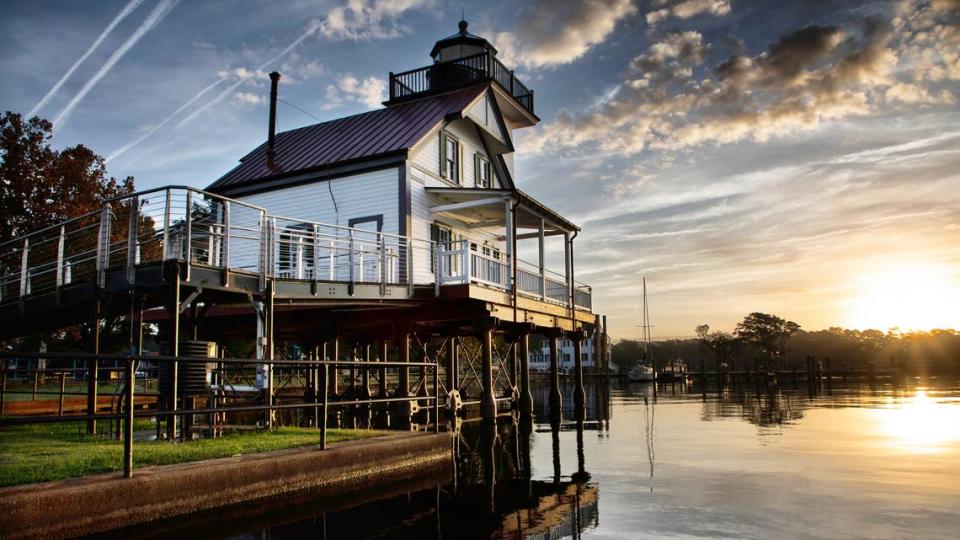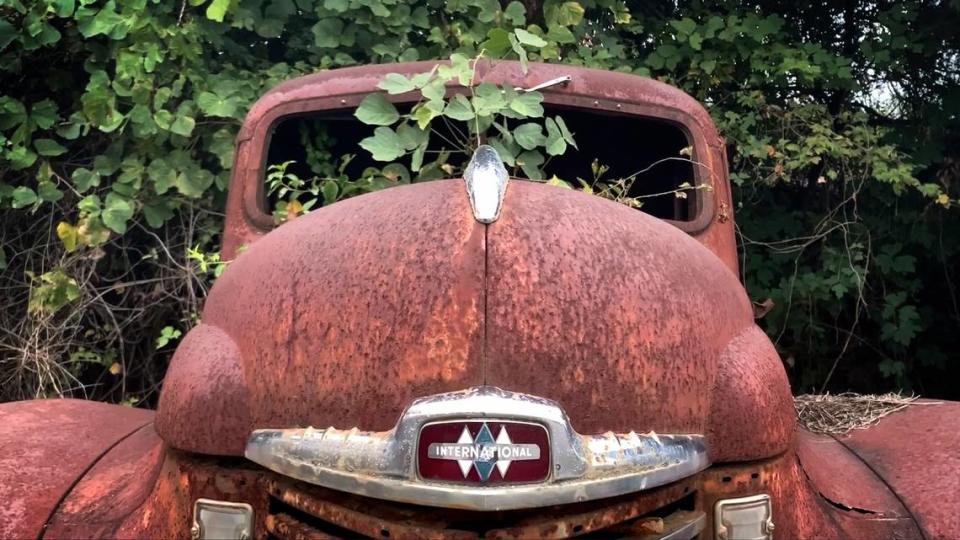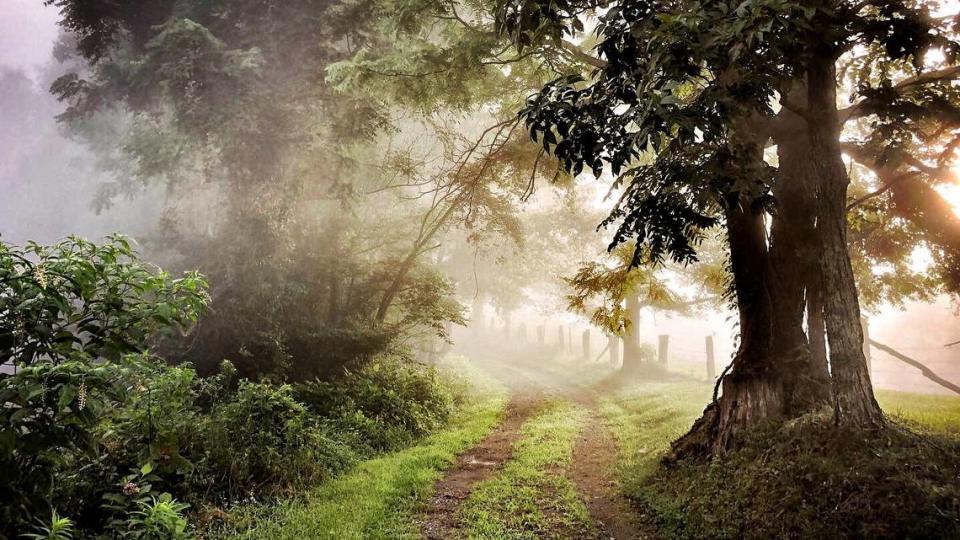What do NC voters really care about in 2020? We went to all 100 counties to find out.
Nikki Burns moved to the middle of North Carolina, to Asheboro in Randolph County, about a year ago from a Chicago suburb.
“I haven’t been in North Carolina that long,” Burns said with an accent that would make her stand out from the people in front of her in line at the new doughnut shop in town. “I might not be the right person to talk to about politics.”
On the contrary, Burns is just the kind of person our journalists wanted to hear from for “Journey Across the 100,” our Murphy-to-Manteo-style listening tour that visited every county in the state to talk with people — regular people, not career politicians — about what’s on their minds as the 2020 election approaches.
Judging from headlines and political debates alone, it might seem that Americans care only about a handful of issues at a time. Immigration. Abortion. Guns.
But as the team of visual journalists from The News & Observer, The Charlotte Observer and the McClatchy Company gassed up their vehicles and traveled into cities, towns and rural communities across the state, they found that North Carolinians have concerns as varied as the vast landscape they inhabit.
Logging more than 20,000 miles over six months, this team of roving journalists traveled interstates and Main Streets, parkways and unpaved roads to talk with people of different ages, races and ethnic identities. They connected with recent transplants to the state and those who have lived here their whole lives; conservatives and liberals; business owners, minimum-wage workers, people out of work and ones who have retired.

A wide selection of interview subjects
Staff reporters helped find interview subjects, calling the owners of bookstores, clothing boutiques and gift shops that cater to tourists. They reached out to bankers, insurance agents, home builders and real estate salespeople. They found cotton and dairy farmers, hairstylists, musicians, a chimney sweep, a taxidermist and a fishing guide. They talked with educators, state employees, lawyers, landscapers and clergy members. They approached mechanics, massage therapists, veterans, college students an innkeeper and a radio host. Straight people and LGBTQ folks.
Each participant was asked to describe their community and talk about good things happening there, as well as things that could use improvement. Visual journalists asked them to talk about what are considered good jobs where they live. Why do people move there? Why do people move away? Each was asked to name the top issues they would bring up with their local, state or national leaders if they had the chance.
And before the interview ended, people were asked: What keeps you up at night?
In every county, the visual journalists captured some of the scenery of the place, to help put the voices and faces into context.
The result is 100 videos from 100 counties, none fully representative of any one place but, taken collectively, creating a detailed political portrait of a complex state in a time of transition.
The videos reveal some predictable divides, including a rural-versus-urban mindset that has intensified over more than two decades as manufacturing jobs have disappeared from North Carolina’s smaller communities and efforts to replace them have faltered.

A message for leaders: Listen to us
But if they feel estranged from some of their neighbors across the state, people report feeling even more distanced from their political leaders, especially at the state and national level.
In the videos, one after another implore their representatives: Remember who sent you. Pay attention to the voters who elected you.
“Why aren’t you listening to the people?” Raymond Austin asked of North Carolina legislators. Austin works for the ferry division of the N.C. Department of Transportation, helping oversee the safe movement of traffic between Hatteras Island, in Dare County, and Ocracoke Island, in Hyde County.
While a popular summer vacation spot, Hatteras also provides a storm barrier to the mainland, Austin noted in his Outer Banks brogue. When hurricanes send the ocean over the dunes and chew up the island highway that brings in people and supplies, it’s not just a problem for those who live or relax there, Austin said.
“I just can’t for the life of me understand why the state has ... I wouldn’t say turned their back on us, but they’re just in idle position,” he said.
Dick Johnston, who runs a food charity called Samaritan Kitchen in mountainous Wilkes County, worries about his neighbors who don’t get enough to eat.
“People are working part-time jobs, two part-time jobs, and barely making enough to get by,” Johnston said, echoing a sentiment heard elsewhere in the state. Retirees are moving into his county, he said, but young people are moving out.

Amid differences, there was unity
For all the differences they found, the interviews also uncovered a deep communion between residents of the state. No matter where they lived, whether they were registered as Republican, Democrat or unaffiliated, nearly everyone who sat down for an interview seems to have similar goals. They want North Carolina to be a place where people can find a safe and decent place to live, do work that sustains them and their families, educate their children and enjoy the beauty the state has to offer.
With nearly 6.6 million registered voters, the state is almost as diverse politically as it is culturally. Almost 2.5 million North Carolinians are Democrats. Nearly 2 million are Republicans. And the state has more than 2.1 million unaffiliated voters.
They’re complicated. They may favor stricter gun control but also want increased limits on abortion. They can argue for better teacher pay and tighter immigration controls and more environmental regulation all at the same time.
They’re interested in infrastructure, affordable housing, health care and homelessness. They talk about internet access, race relations, living wages, voting rights, military and veterans’ benefits. They care about crime rates and the opioid epidemic.
They’re tired of political bickering.
We hope their words resonate. For sure, the issues they raise will inform our work between now and November, as we cover political campaigns and polls, track legislation and report the news.
We’re still listening. We hope you will, too.
Find Journey Across the 100 at www.newsobserver.com/journeyacross100.

